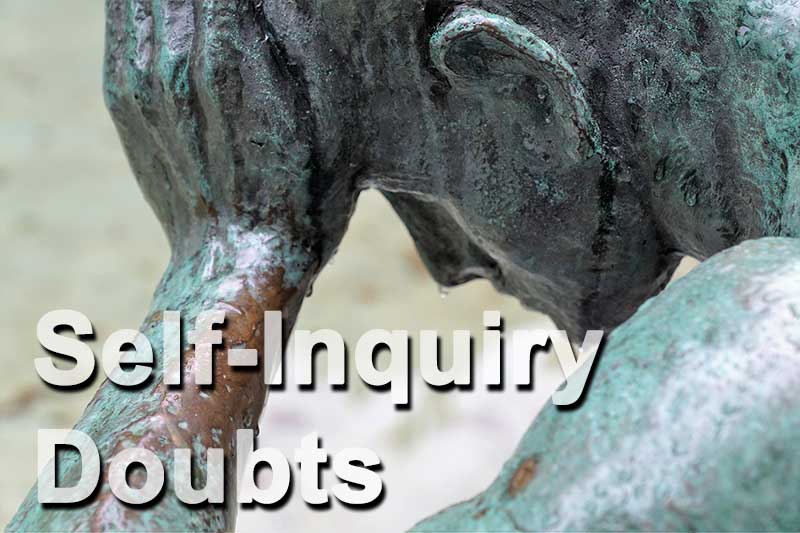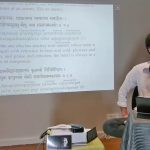Stay Anchored in Truth

INQUIRER:
Can we possibly go back to the issue of fear, the irrational, the unwholesome fear, the one that is labeled as hindrance to spiritual growth.
I was thinking about it, why is it so that this person is experiencing it in such a large quantities and for quite a prolonged time.
One way of explaining it is that ego is resisting its transmutation, its major metamorphosis, since it would not be in charged no more.
Another possibility is that there is a fear of not getting the desired goal of unalloyed peace and happiness, so it is masked desire.
Or just unresolved subconscious past traumas that are percolating out through fears.
Or is it just ‘normal’ for jiva to be fearful, as life itself is fleeting, unpredictable and insecure.
And maybe most probably a combination of all of those.
RESPONSE:
From the jiva’s perspective, it is probably a combination of all those contributing factors.
The real question is whether or not the fear is you.
Is the fear you or are you the one witnessing the fear?
Really, the fear itself is not an issue.
Fear is just energy in motion (e-motion).
It is only a problem because you judge it as undesirable and wish to be rid of it.
The individual fears themselves and indeed the general feeling of fear that arises in awareness and is associated with certain objects are products of the vasanas.
That is, they are simply responses evoked by your likes and dislikes, which are rooted in the residual impressions of your past experiences.
They are essentially just old habitual reactions to phenomena.
Moreover, the experience of fear is nothing more than just that — an experience.
Like all experience, it is only temporary.
You don’t have to get carried away by it.
You can simply watch it come and watch it go and realize that neither its appearance nor its disappearance had any real affect on you as pure awareness.
INQUIRER:
But I sense that, maybe not yet fully, only way to fearlessness is to realize non-dual Awareness, the eternal, changeless Self.
RESPONSE:
Stay anchored in what you know to be true.
Each time you do this the fear vasanas will exhaust without being reinforced, and they'll gradually reduce. This is your sadhana.
It is INCORRECT to assume that moksha (realizing non-dual Awareness) suddenly drops all fears in an instant.
On the contrary, during the jnani's non-jnani years, he has worked on fear vasanas for extended lengths. Inquiring into each.
Little by little, the fears transformed into understandings.
Because we only fear that which we don't understand.
INQUIRER:
Also, I recently came back from a year trip in India & Nepal.
It's disturbing to be back in the West, with all the baggage of the past, living with my parents.
There is an inclination to leave again.
I am questioning, is it escaping, or is it just natural to be more for myself, more on my own, more in solitude, simple as it can go.
RESPONSE:
It is wise to simplify your life as much as possible.
You can progress much faster if your mind is less agitated.
That said, you should not run off to India solely because you believe that the Self can only be found there.
You can just as well do sadhana in homeland.
The real issue here is the one faced by Arjuna in the Bhagavad Gita…
What is your temperament?
If you are truly a sannyasi (renunciant), then heading to India and living an austere existence might suit you.
But if you are rajasic, extroverted, are identified with being a doer, then trying to achieve liberation through dropping all your worldly endeavors will serve only to agitate your mind more.
Because those rajasic vasanas will still seek expression but have no outlet for such.
If that is the case, then it is better to stay in the world and perform your duties as karma yoga.
It sounds like you perhaps have the temperament of a sannyasi, but only you can know for sure.
Be honest with yourself.





